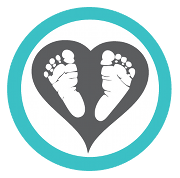The current recommendations for pregnancy weight gain are:
Underweight (BMI = 18.5 or less) - total weight gain: 28 to 40 lbs
Healthy weight (BMI = 18.5 to 24.9) - total weight gain: 25 to 35 lbs
Overweight (BMI = 25 to 29.9) - total weight gain: 15 to 25 lbs
Obese (BMI = 30 or more) - total weight gain: 11 to 20 lbs
Following these guidelines will help reduce the risk of many pregnancy complications such as gestational diabetes, high blood pressure, failure to progress in labor and increased risk of cesarean delivery with its associated surgical complications.
Gaining excess weight also means you will need to fight to get off after the delivery so taking cautions now will pay dividends later.
The best thing you can do is plan your meals to include only nutrient dense foods; avoiding empty calories (sugar sodas, pastries, cookies, candy, etc.) and keeping fat content low. Complex carbohydrates such as whole grains, fruits and vegetables should replace the "white" stuff - flour, sugar, rice. Check out My Pyramid to make a plan that's right for you. Of course exercise is an important component to your health and weight gain goals. Ask your doctor if there are any restrictions for you but most women can walk, swim and participate in other forms of exercise.
Baby Center has a weight gain tracker tool here.






















No comments:
Post a Comment
This blog only reviews comments before posting to avoid hijacking. We will respond to comments Mon-Thurs but we are closed Fri-Sun and legal holidays.